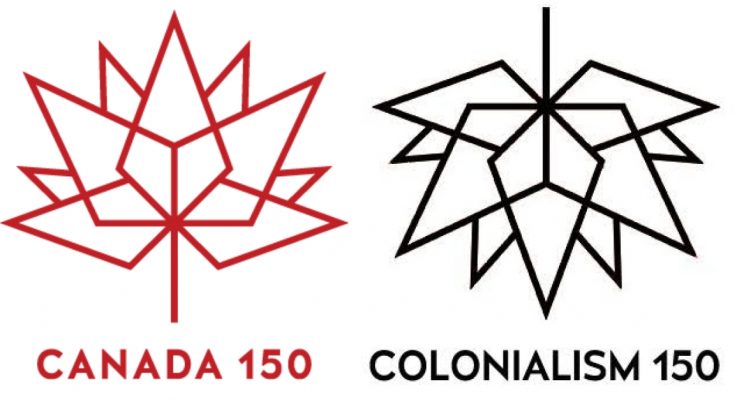Challenging Canada 150:
Settler Colonialism and Critical Environmental Sciences
Challenging Canada 150 Booklet – Title:Intro
Challenging Canada 150 Booklet – Part 1
Challenging Canada 150 Booklet – Part 2
NU news about symposium and Collage of photos
Starting on October 10, 2017 Nipissing University hosted a five day international symposium to consider the question of how we can bring together the humanities and geophysical sciences to revisit how we examine environments in the past within the context of settler colonialism.
Nipissing University’s two Canada Research Chair holders, Kirsten Greer and April James, joined efforts with Alan Lester (Geography, University of Sussex), a leading British scholar in settler colonial studies to bring together an impressive and varied group of indigenous knowledge holders and scholars to consider the meaning of Canada’s 150th anniversary.
Highlights of the symposium included Keynote addresses by:
Scott McLeod, the Chief of Nipissing First Nation, who will speak about the Lake Nipissing fishery
Alan Lester (Sussex) who will speak about Lake Nipissing in the context of the global colonial project
Paul Nadasdy (Anthropology, Cornell University) who considers how environmental knowledge gets used in Canadian wildlife management
Wendy Makoons Geniusz (Ojibwe Language, University of Wisconsin-Eau Claire) whose talk “Nookomis Giizhik, Nimisenh, Miina’ig, Ingijibinaa: Working with Plants and Trees to Open Lines of Communication” aims to illuminate philosophical differences between cultures and open possibilities for unity
Deborah McGregor (Canada Research Chair in Indigenous Environmental Justice, York University) who will speak on the topic “Traditional Ecological Knowledge: Storytelling about the Earth”
Participants had the opportunity to enhance their research and analytical skills by attending workshops about ethical research practices, building meaningful partnerships between universities and First Nation communities, and how to safely share indigenous environmental knowledge with outside communities.
Randy Restoule, curator of the new Dokis Museum, and Dokis First Nation hosted the group for an entire day devoted to learning about medicines and plants.
